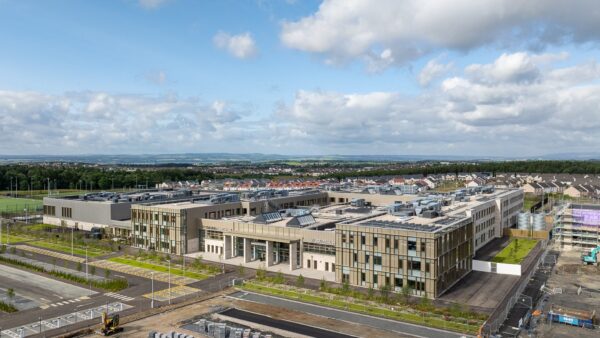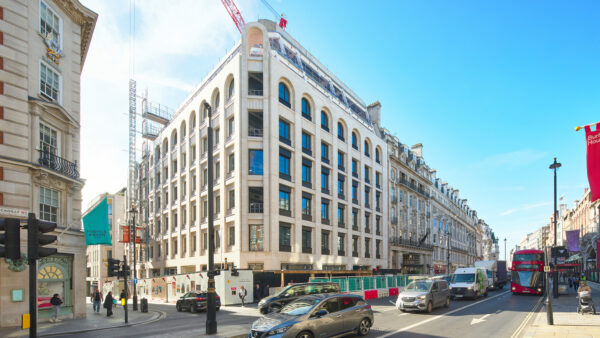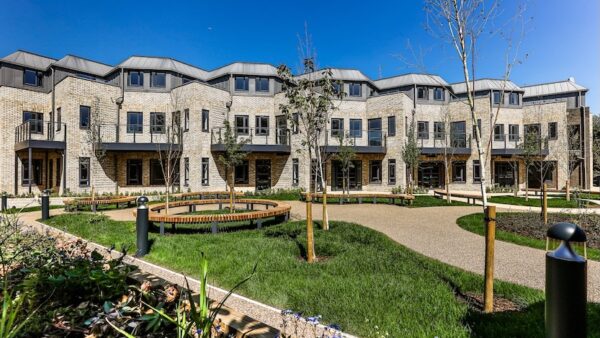The next step on the digital journey
Following the success of the government’s Level 2 BIM requirements, Digital Built Britain has its eye on the next level, says David Philp.

David Philp
Digital technology, combined with more integrated processes, is rapidly changing the way we plan, build, maintain and use our social and economic infrastructure and built assets.
Since the announcement of the Government Construction Strategy in 2011 and its requirements for Level 2 BIM, the process of digitising the built environment has started to gain real momentum.
Register for free or sign in to continue reading
This is not a paywall. Registration allows us to enhance your experience across Construction Management and ensure we deliver you quality editorial content.
Registering also means you can manage your own CPDs, comments, newsletter sign-ups and privacy settings.
Over the next decade this technology will combine with the internet of things, advanced data analytics and the digital economy to enable citizens to make better use of the buildings and infrastructure we already have: this is Digital Built Britain (DBB).
DBB is an ambitious programme based on the significant progress demonstrated by Level 2 BIM. The strategy represents the outcomes and recommendations for the next stage of the BIM journey and a much wider sector digitisation.
To enter the market with an equally successful Level 3 programme we must commence research and develop cross-industry partnerships to create convergent trajectories on themes such as smart cities and advanced manufacturing.
Smart networked world
The DBB programme seeks to create a mature digital economy for the built environment which delivers high-performing assets and exceptional client value as well as a knowledge base to enable the smart city. This approach will help attract the most talented individuals from diverse backgrounds into an industry that is seen to be innovative and technologically advanced, and adds demonstrable value to society.
This is a progressive journey and, in addition to the Level 3 path, it provides a continuation of the work undertaken by the UK BIM Task Group. The DBB Level 2 Public Sector BIM Working Group continues to support the government departments and alignment with emerging Level 3 models by making BIM Level 2 business as usual.
It is important to note that there is no change to the current government mandate: Level 2 BIM remains the benchmark and industry should continue to adopt and optimise the use of these standards and supporting tools.
The built environment as part of a smart networked world creates new opportunities and business models. Engagement with industry and wider built environment stakeholders will be essential in the creation of new technical solutions, new behaviours and smarter ways of constructing and manufacturing.
We are excited to be partnering with Digital Construction Week in October (see box) to meet as many of you as possible who want to join the DBB journey. We are aiming to create a nation built on digital excellence, and with programme leadership provided by the government and Innovate UK, will share with you our latest developments and ambitions. We hope to see you there.
David Philp is a trustee of the CIOB and a member of the Digital Built Britain team. Digital Built Britain is the Official Conference Partner at Digital Construction Week 2017: www.digitalconstructionweek.com
Digital Construction Week (Oct 18-19)
What’s new at this year’s built environment technology event
- Westminster reception – In partnership with Digital Built Britain sponsored by Enterprise Ireland.
- Five new theatres – Five key trends: BIM, Geospatial, Visualisation, Smart Buildings and Industry 4.0.
- Startup Village – A handpicked group of startups showcase some of the latest technologies at DCW.
- The Augmented Worker- Join AMRC & Soluis for live demos of their Innovate UK funded Augmented Worker project.
- Drone drag racing – Sign up and take flight – your chance to enter our drone-racing competition.
- The HS2 & Thames Tideway hubs – Gain insight into the ways digital technologies are being implemented.
- BIM Village #bimchats – Free two-day BIM seminar programme and workshops, in partnership with the UK BIM Alliance.
- VR workshop – Five leading VR companies explore the use case for virtual reality, with live demos and workshops.










